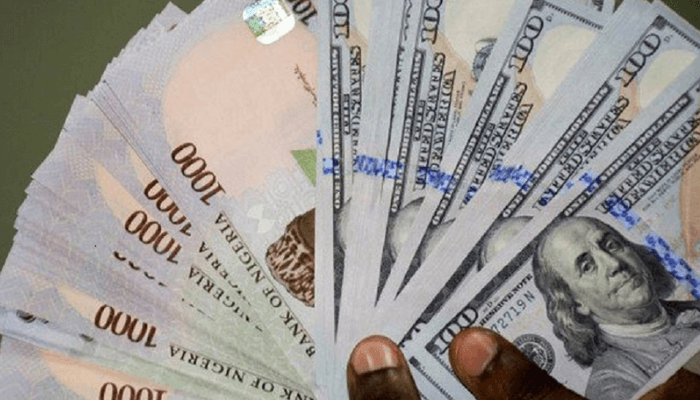The naira on Tuesday maintained relative stability in the unofficial foreign exchange (FX) market, known as parallel, or black market, despite threats of military invasion against Nigeria by Donald Trump, the United States president.
Traders in major cities said the local currency traded at similar levels as the previous day, showing no significant volatility despite the external pressure.
Checks in parts of Lagos and Abuja showed that the dollar was sold at an average rate of N1,440 on Tuesday, the same as Monday’s rate. In some areas of Abuja, the naira even appreciated slightly, exchanging at N1,450 to the dollar compared to N1,460 quoted the previous day in the black market.
Currency dealers attributed the stability to moderate demand and improved supply from informal sources, which helped cushion potential pressure arising from Trump’s comments.
In contrast, the naira weakened in the official market on Monday, depreciating by about 1.0 percent following Trump’s threats. Data from the Central Bank of Nigeria (CBN) indicated that the local currency lost N14.61 as the dollar closed at N1,436.34 at the Nigerian Foreign Exchange Market (NFEM), compared to N1,421.73 per dollar recorded on Friday.
Read also: Naira, Eurobonds down after Trump’s threat to Nigeria
Trump had, in a post on Truth Social on Saturday, claimed he instructed the Pentagon “to prepare for possible action” and threatened an immediate cut-off of aid to Nigeria, an OPEC member and Africa’s most populous country. His comments had raised concerns about potential geopolitical and economic implications, including risks to investor confidence and foreign exchange inflows.
Meanwhile, Nigeria’s foreign exchange inflows through International Money Transfer Operators (IMTOs) have continued to weaken. According to data from the CBN’s latest Quarterly Statistical Bulletin, FX inflows through IMTOs declined by 6 percent quarter-on-quarter to $888 million in the first quarter of 2025.
A report by FBNQuest noted that this marks the second consecutive quarterly drop in inflows through the IMTO channel, with a year-on-year contraction of 18 percent.
The report added that apart from the two most recent quarters, IMTO inflows had recovered strongly since the fourth quarter of 2023, following the central bank’s reforms aimed at improving transparency and pricing in the FX market, alongside revised guidelines governing IMTO operations. As a result, total diaspora remittances through formal IMTO channels rose to almost $4.8 billion in 2024, compared to about $3.3 billion in 2023.
However, in the first quarter of 2025, the surplus in the current transfers segment of the current account fell by 18 percent quarter-on-quarter to $5.3 billion, partly due to a 4 percent decline in diaspora remittances. Analysts believe the drop in IMTO inflows could be linked to increased use of informal channels and cryptocurrencies, which have become popular alternatives for cross-border transfers.
Restrictive immigration policies in major remittance source countries, such as the United States, the United Kingdom, and Canada, are also seen as limiting remittance inflows, as fewer work opportunities for Nigerians abroad reduce earning capacity. Additionally, persistent inflation in these countries, which remains above the 2 percent target, has further squeezed disposable income and constrained remittance volumes.
Despite the decline, analysts at FBNQuest observed that the overall impact on Nigeria’s foreign exchange market remains moderate since IMTO inflows account for about one-fifth of the total $5 billion in annual diaspora remittances. They added that sustained foreign exchange market reforms, enhanced remittance infrastructure, and deeper engagement with the diaspora community will be crucial to stabilising inflows and supporting naira liquidity in the coming months.

